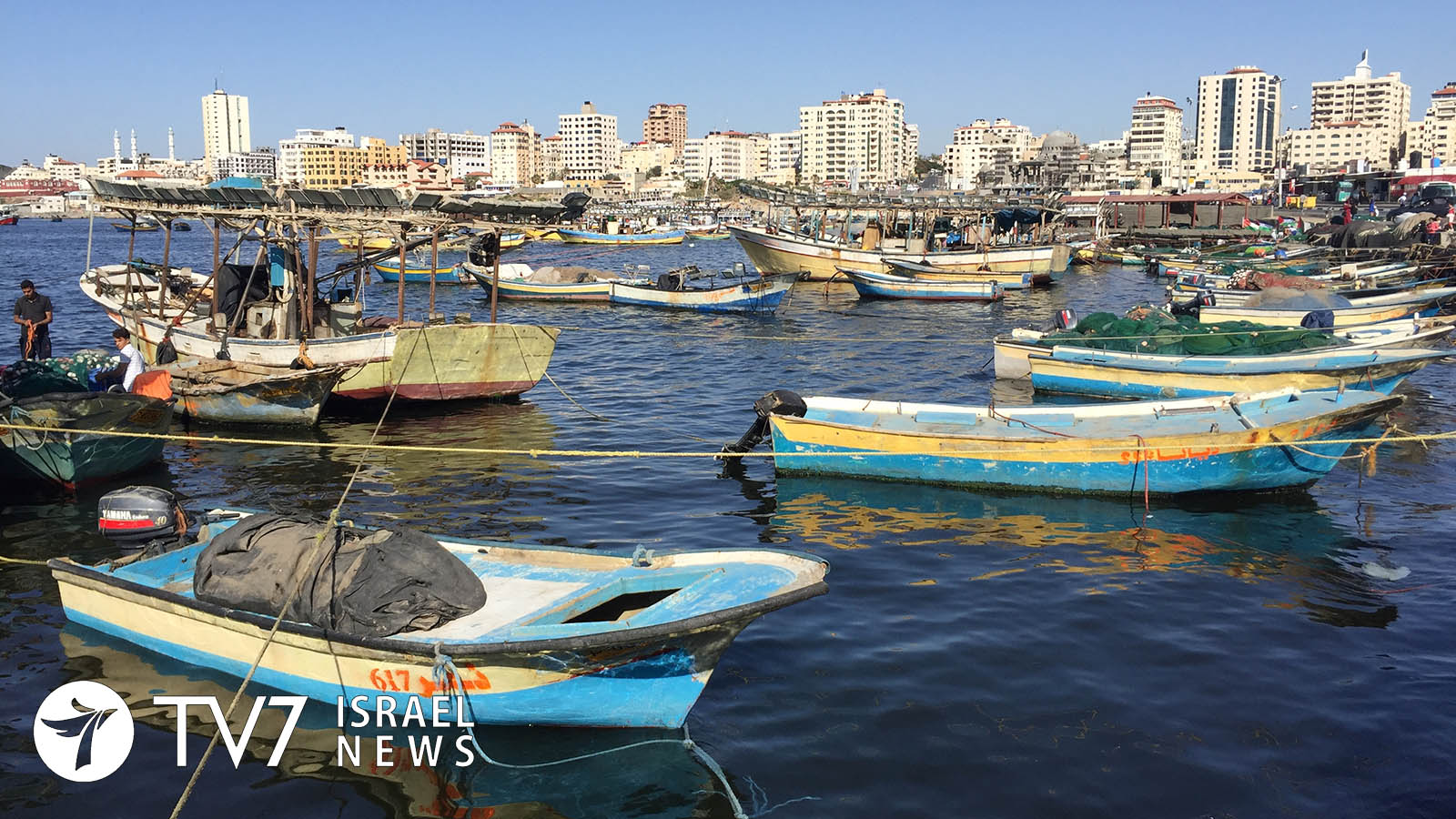By Erin Viner for TV7
The IDF Coordinator of Government Activities in the Territories (COGAT) has announced that in light of the security calm with Gaza over the past week, that the fishing zone off the Hamas-controlled Palestinian enclave will be expanded from 6 to 9 nautical miles.
According to a statement TV7 received from the COGAT Spokesperson’s Office, the import of raw materials for essential civilian factories from Israel into the Gaza Strip through the Kerem Shalom Crossing have been resumed, starting today.
The latest easing of conditions on the territory ruled by the Islamist terror group comes after the decision on Monday to allow the limited export of agricultural produce from Gaza through Kerem Shalom into Judea and Samaria (West Bank) and abroad. This was the first time such commerce was permitted since the end of the 11-day Operation Guardian of the Walls conflict between Gaza and Israel in May.
All of the above-listed civilian measures were approved by Israel’s political echelon and are conditioned on the preservation of security stability with Gaza.
Operation Guardian of the Walls erupted when Hamas and the Palestinian Islamic Jihad (PIJ) terror organizations in Gaza began firing barrages of missiles at Jerusalem on 10 May. During the conflict, over 4,000 rockets were fired from the Palestinian enclave at major Israeli population centers. About 90% of the rockets entering Israeli air space have been intercepted by the Iron Dome aerial defense system, while a third fell short or misfired into Gaza.
Earlier this week, Hamas threatened to escalate violence against Israel unless it immediately transfers funds donated by Qatar to the Gaza Strip, declaratively earmarked for humanitarian purposes.
A Hamas official noted on condition of anonymity that leaders of what he called “resistance factions” agreed during a meeting in Gaza yesterday to “ignite” the situation as a pressure method, both figuratively and literally, by resuming the launching of incendiary and explosive-rigged balloons into Israel combined with demonstrations along the security fence.
The Gaza terror faction pressed mediators to push Israel to “lift the siege on Gaza and end the issue of its reconstruction,” proclaiming they would “not sit idly by in the face of [Israel’s] procrastination.”
Israel is not opposed to coordinating the transfer of Qatari assistance. The new government of Prime Minister Naftali Bennett is enforcing new restrictions, however, which have infuriated Hamas. While the previous administration of former Israeli Prime Minister Benjamin Netanyahu permitted a Qatari envoy to personally deliver suitcases of cash to the Gaza-rulers, the Bennett government insists that all humanitarian assistance to the Strip be deposited into designated Palestinian Authority (PA) bank accounts of respective governmental ministries, that are subject to more stringent monitoring.
Jerusalem officials believe that a solution will be found to the issue as early as next week, following a slated visit by an Israeli delegation to Cairo.
Qatar has spent $1.4 billion on rebuilding the Gaza Strip since 2012, Doha’s Foreign Minister Sheikh Mohammed Bin Abdulrahman Al-Thani reportedly revealed at a financial conference held in Russia on 4 June.
Jonathan Hessen contributed to this report.
